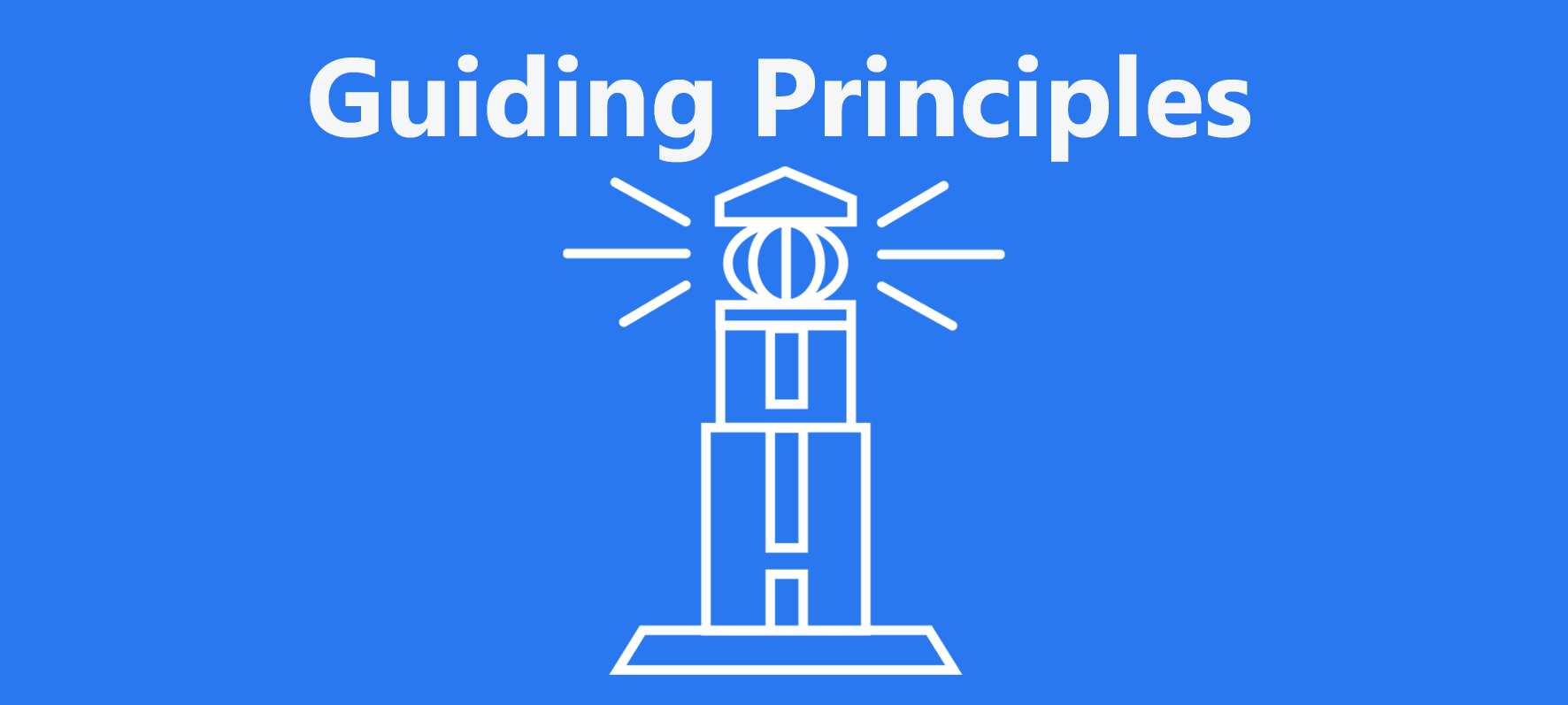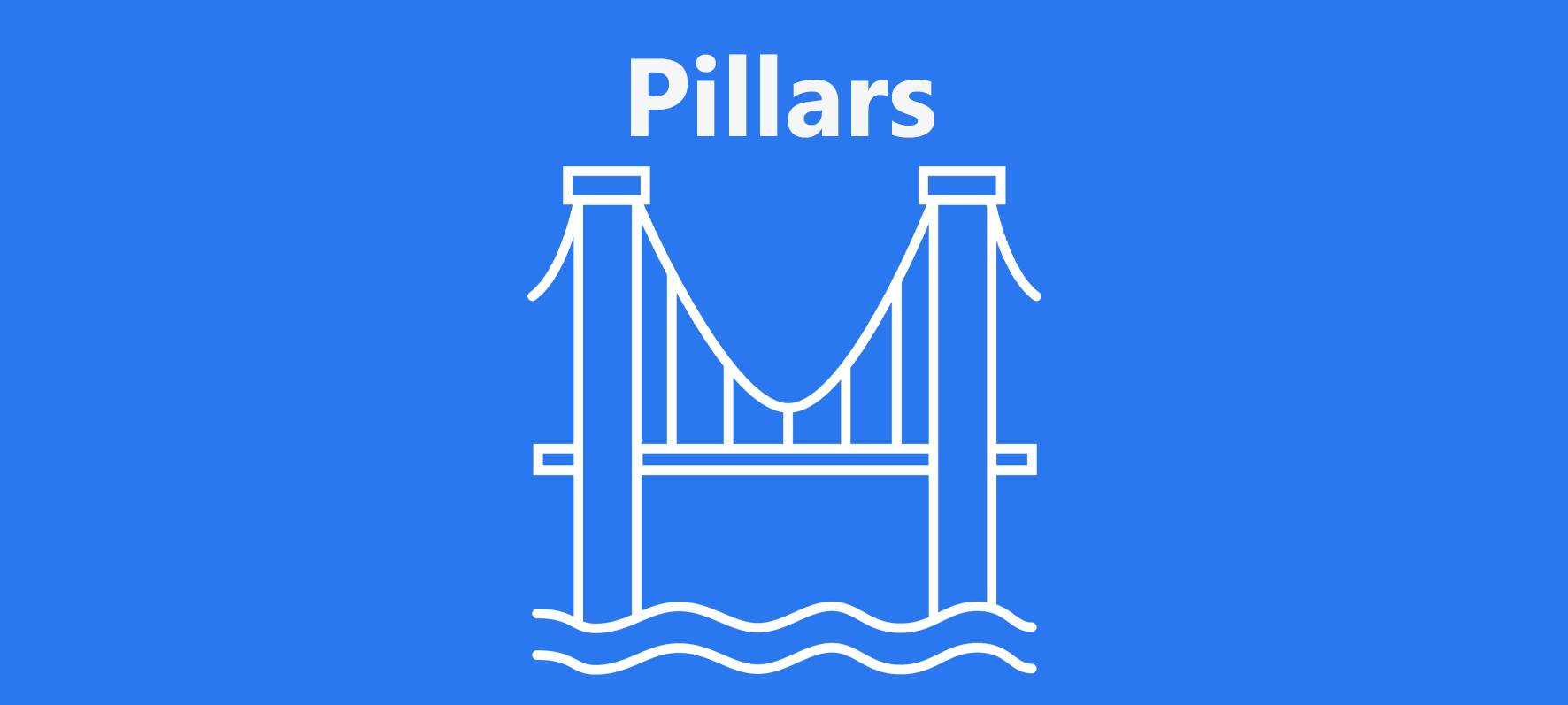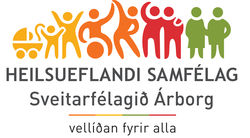The Road to Wisdom and Well-Being
Education policy of the Árborg municipality until 2030
Introduction
Árborg's Education Policy is called The Road to Wisdom and Well-Being and is intended to be a guiding light for all those who work with children and young people in the municipality towards successful learning and leisure activities. The Education Policy contains one main objective, three guiding principles and five pillars to support and guide how professional school and leisure activities are carried out in the municipality, with the well-being of children and young people in mind.
It was based on the results of focus groups and questionnaires that were submitted to students, parents and staff of preschools, primary schools, secondary schools and music schools, sports activities and leisure services in the spring of 2023. The Education Policy is also based on the government's Education Policy for 2030, the basic elements of education and the current main curricula of preschools and primary schools, as well as the Convention on the Rights of the Child and the United Nations Global Goals. An interdisciplinary group of stakeholders participated in the creation of the Education Policy, and received feedback from the parent councils of preschools and primary schools, the Education and Leisure Committee and an interdisciplinary group of Family Department staff.
Árborg's Education Policy was approved by the town council in June 2024 and published on 20 August, 2024. Implementation of the policy will begin in the 2024-2025 school year, and will be implemented in stages, where its focus will be reflected in the school curricula, work schedules and action plans of each individual institution. The Education Policy will be revised at least once during its validity period.

The main objective of Árborg's Education Policy
The main objective of the Education Policy is to give all children and teenagers in Árborg equal access to excellent and inclusive education and leisure activities, in a safe, diverse and stimulating environment. Children and teenagers should have equal opportunities to develop and cultivate their skills in learning and play, and their welfare ensured in everyday life, where the emphasis is placed on respect for the individual and the environment, positive self-image, well-being and good social skills.
The Education Policy is based on three guiding principles that should characterize all work with children and teenagers in Árborg. The guiding principles: Welfare at the forefront, Diversity and Professional learning community are the key to the quality work that characterizes school and leisure activities in Árborg.
Welfare at the Forefront
 Children and young people are the heart of the system. They have the right to have their opinions, culture and diversity respected. It is emphasized that they know their rights and responsibilities, learn to respect themselves and others, and know how to use critical and creative thinking in everyday life. Children and young people should have the opportunity to express their opinions on the issues that concern them and affect their lives.
Children and young people are the heart of the system. They have the right to have their opinions, culture and diversity respected. It is emphasized that they know their rights and responsibilities, learn to respect themselves and others, and know how to use critical and creative thinking in everyday life. Children and young people should have the opportunity to express their opinions on the issues that concern them and affect their lives.
Children and teenagers should feel comfortable in learning and play, where the environment and conditions are adapted to their age and development. They should have the opportunity to develop their identity, social skills, independence, resilience, talents and skills in a safe and stimulating environment.
The success of children and young people involves ensuring conditions and environments that create the conditions for them to develop and flourish on their own terms for the future. Staff who work with children and young people must work together for their welfare, and ensure that they receive the services they need, at the right time, from the right people.
Diversity
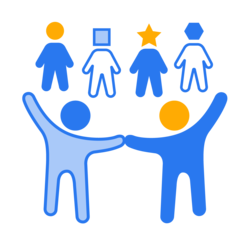 In order to create a safe environment for children and young people, and equal opportunities where their abilities and diversity can thrive, it is important to encourage active participation in school and leisure activities. Strong and good collaboration with parents is the key to active participation.
In order to create a safe environment for children and young people, and equal opportunities where their abilities and diversity can thrive, it is important to encourage active participation in school and leisure activities. Strong and good collaboration with parents is the key to active participation.
It is important to guide and nurture a healthy and positive self=image, and emphasize respect for diversity in all its forms. In school and leisure activities, work is being done to promote tolerance, human rights and democratic awareness.
Árborg is a multicultural society where different linguistic and cultural backgrounds are seen as resource. That vision reflects the practices of everyone who works with children and young people in the municipality, and the organization of school and leisure activities is based on creating an environment where children and young people feel that they have a voice and influence in society.
Professional Learning Community
 To ensure quality education and equality in school and leisure activities, the philosophy of the learning community is used as a guiding principle. A professional learning community promotes collaboration and a common vision of the school community, and is based on professionalism, teamwork, reflection in learning and work, and effective professional development. Emphasis will be placed on the competence and professional independence of teachers and other professionals, as well as diverse teaching methods, innovation and collaboration among professionals, where diverse expertise is used as a guiding principle.
To ensure quality education and equality in school and leisure activities, the philosophy of the learning community is used as a guiding principle. A professional learning community promotes collaboration and a common vision of the school community, and is based on professionalism, teamwork, reflection in learning and work, and effective professional development. Emphasis will be placed on the competence and professional independence of teachers and other professionals, as well as diverse teaching methods, innovation and collaboration among professionals, where diverse expertise is used as a guiding principle.
A professional learning community includes, dialogue and collaboration between parents, school and leisure institutions as well as with the working world and the local community where equality in learning and teaching is guaranteed and children, teenagers and staff have the opportunity to learn from each other and with each other.
Employees are given the opportunity for continuing education and career development that takes society's challenges into account at all times. The knowledge and skill development of employees is considered one of the most important factors in ensuring quality teaching, and efforts must be made to create scope for staff to increase their knowledge and skills, learn about professional innovations and strengthen collaboration among themselves. We will continue to work on strengthening internal evaluation and professional career development in cooperation with the school authorities.
Árborg's Education Policy rests on five pillars which should encompass the focus areas set for all work with children and young people. The pillars are intended to promote the welfare of all children and young people in Árborg, both in learning and play, and to ensure that they have the opportunity to develop their skills and abilities for the future. The pillars are: Well-being at the forefront, equal opportunities, quality education, skills for the future and the environment and society.
Well-being at the forefront
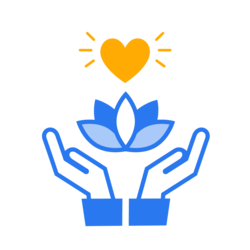 In Árborg, emphasis is placed on creating an environment and conditions that promote a healthy lifestyle, good mental, physical and social health and well-being. Children and young people receive targeted education about a healthy lifestyle, healthy eating habits and the importance of exercise and sports. The happiness and well-being of children and young people is at the forefront, as good social skills and positive communication are one of the key elements of well-being, activity and success in learning and leisure activities.
In Árborg, emphasis is placed on creating an environment and conditions that promote a healthy lifestyle, good mental, physical and social health and well-being. Children and young people receive targeted education about a healthy lifestyle, healthy eating habits and the importance of exercise and sports. The happiness and well-being of children and young people is at the forefront, as good social skills and positive communication are one of the key elements of well-being, activity and success in learning and leisure activities.
Joy must be prevalent in the environment of children and young people so that their experiences are both rewarding and fun. Learning through play is the basis of every child's development process, but play also brings countless opportunities to experience joy, and promote creativity and well-being. Children and young people should experience kindness and respect, and their best interests should always be kept in mind.
Prevention education is present in all school and leisure activities. Good cooperation with the municipality's prevention team, the parent community and the sports movement is a key factor in order to ensure effective prevention. Emphasis will be placed on preventing the development of unhealthy relationships, risky behavior and violence. This will be done, among other things, through education on behavioral, social and emotional skills, positive communication, sexual health, queer education and the rights of each individual. Consideration will be given to equality considerations and that children and young people are not threatened by mental, physical, gender-based and sexual violence, harassment and bullying.
Equal opportunities
 In Árborg's Education Policy, emphasis is placed on creating equal opportunities for all children and young people for study, leisure and sports. The needs, abilities and skills of each individual must be taken into account, and the individual will be given the opportunity to use their strengths and interests in learning and play. Ways must be sought to ensure that everyone finds their place in the education system, and that equality within it is held in high regard.
In Árborg's Education Policy, emphasis is placed on creating equal opportunities for all children and young people for study, leisure and sports. The needs, abilities and skills of each individual must be taken into account, and the individual will be given the opportunity to use their strengths and interests in learning and play. Ways must be sought to ensure that everyone finds their place in the education system, and that equality within it is held in high regard.
It must be ensured that the voice of children and young people is heard regardless of age, ability or background. That they have the opportunity to influence their environment, both in school and leisure activities, with a strong student democracy where they will work with democratic and human rights education based on critical thinking about the basic values of society. Students take part in shaping a positive school atmosphere and protocols according to age and maturity.
The diversity of children and young people in a multicultural society is celebrated and used to strengthen society. It must be ensured that no one is excluded by emphasizing equality, joint responsibility, solidarity and acceptance of different individuals and points of view. Respect for diversity is encouraged and the guiding principle is that everyone has something to contribute.
Quality education
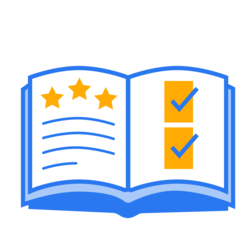 Cooperation, clear responsibility and integration within and between systems is a common thread in Árborg's Education Policy. Support for students and guidance for parents and school staff is at the foreground at all school levels, where the school's support services play an important role in adapting school and leisure activities to a diverse group of children and young people. Appropriate, adequate, timely and continuous support must be ensured in learning and play for the children and young people who need it. Special attention must be paid to children and young people with diverse linguistic and cultural backgrounds, disabilities and those with learning and social difficulties. A status assessment is given to new students in primary school to ensure suitable studies and successful schooling.
Cooperation, clear responsibility and integration within and between systems is a common thread in Árborg's Education Policy. Support for students and guidance for parents and school staff is at the foreground at all school levels, where the school's support services play an important role in adapting school and leisure activities to a diverse group of children and young people. Appropriate, adequate, timely and continuous support must be ensured in learning and play for the children and young people who need it. Special attention must be paid to children and young people with diverse linguistic and cultural backgrounds, disabilities and those with learning and social difficulties. A status assessment is given to new students in primary school to ensure suitable studies and successful schooling.
Children and young people are enabled to acquire new knowledge, increase their skills and be able to apply and use their knowledge. It is important that children and young people are aware of the need to be creative and responsible in their search for knowledge and not be afraid to experiment. Expectations are placed on students regarding academic success, perseverance and academic progress, taking into account needs and circumstances. Students learn to take responsibility for their own studies, adopt good work habits, develop a growth mindset and learn to set goals. Emphasis is placed on good cooperation between homes and schools, where mutual respect and trust is maintained.
Course assessments must assess the students' ability in a transparent and instructive way, and consider the different abilities of each person. Course assessment is presented in such a way that it regularly provides clear information about the progress of the studies. It is also important to assess the well-being and welfare of students.
A comprehensive school service will be provided with job-related guidance, pedagogical consultation, professional development and support for the school community in the foreground. Work will continue to strengthen the internal evaluation of school and leisure activities in accordance with the government's Education Policy for 2030, and the efficient allocation of funds to the school community must be ensured.
Skills for the future
 Literacy is a social phenomenon that develops over a long period of time and the foundation for it is laid immediately during language acquisition, as parents play an important role in language education. Education for children and young people is a collaborative project between homes and schools, where the school plays a professional leadership role. In preschools, the emphasis is on language stimulation, and in all school and leisure activities, efforts are made to strengthen children's language environment and vocabulary for successful schooling. Early intervention is aimed for, and support in both school and leisure activities to support the children and young people who need it.
Literacy is a social phenomenon that develops over a long period of time and the foundation for it is laid immediately during language acquisition, as parents play an important role in language education. Education for children and young people is a collaborative project between homes and schools, where the school plays a professional leadership role. In preschools, the emphasis is on language stimulation, and in all school and leisure activities, efforts are made to strengthen children's language environment and vocabulary for successful schooling. Early intervention is aimed for, and support in both school and leisure activities to support the children and young people who need it.
Literacy plays an important role in the digital environment we live in today. Information and media literacy are prerequisites for prosperity, security and progress in the digital world, and children and young people need to be supported when learning critical thinking when handling and analyzing information. They need to learn to be responsible for their digital footprint, be familiar with data protection and acquire knowledge and training in functional communication with safety as a priority. It is necessary to consider the skills of children and young people in digital learning and working environment so that they acquire skills and knowledge on the widest possible basis.
The growth opportunities of the future consist, among other things, in identifying opportunities for innovation. School and leisure activities must provide children and young people with the opportunity to work in unconventional ways, where their imaginations can flourish and lead to innovation. Primary school students receive teaching in industrial and technical subjects, and in cases where it is necessary to look to non-traditional studies, young people will be offered internships and/or project-based studies as appropriate.
Conditions must be created for children and young people to make art and attend art studies in Árborg's school and leisure activities. Art education promotes innovation, entrepreneurship and brings life and color to society. Creativity in its broadest form should be encouraged with a constructive learning environment. The conditions, cooperation and development work with Árborg's art institutions must be ensured, so that creativity can be systematically developed and promoted in society.
Emphasis is placed on targeted study and career counseling in all primary schools. Such counseling supports students' ability to manage their own studies and career in a changing world and supports students in making informed and thoughtful decisions about studies and careers based on their own areas of interest, strengths and values. It is important to ensure the basis for cooperation and development of educational, leisure institutions and the economic sector, so that Árborg's learning community has as strong a growth potential as possible.
Environment and society
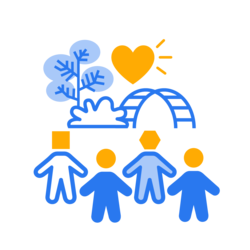 The environmental awareness of children and young people will be strengthened through intensive education about the interaction between nature and humans, and through diverse opportunities to get to know the environment in learning and play. Knowledge of environmental and climate issues, nature and the local community are prerequisites for children and young people to learn to treat their environment with respect and care. Utilization of resources, environmental protection and sorting of waste is an inherent part of society, and it is emphasized that the municipality's institutions are exemplary in this field.
The environmental awareness of children and young people will be strengthened through intensive education about the interaction between nature and humans, and through diverse opportunities to get to know the environment in learning and play. Knowledge of environmental and climate issues, nature and the local community are prerequisites for children and young people to learn to treat their environment with respect and care. Utilization of resources, environmental protection and sorting of waste is an inherent part of society, and it is emphasized that the municipality's institutions are exemplary in this field.
In the local environment, there are both opportunities and challenges that it is important for children and young people to be aware of. Ways must be sought for them to be familiar with the main companies and institutions in the local area, to get to know nature and the environment, be familiar with energy and transport issues and to be aware of the importance of society's sustainability. This is done in good cooperation with companies, institutions, non-governmental organizations and individuals in the local community.
It is important that the learning environment for children and young people is stimulating, and that the facilities take age and maturity into account. Learning and teaching materials, as well as equipment are diverse, appropriate and in line with the main focus of professional school and leisure activities. The environment of schools and leisure centers should be attractive and neat, where safety is a priority both inside and outside.

